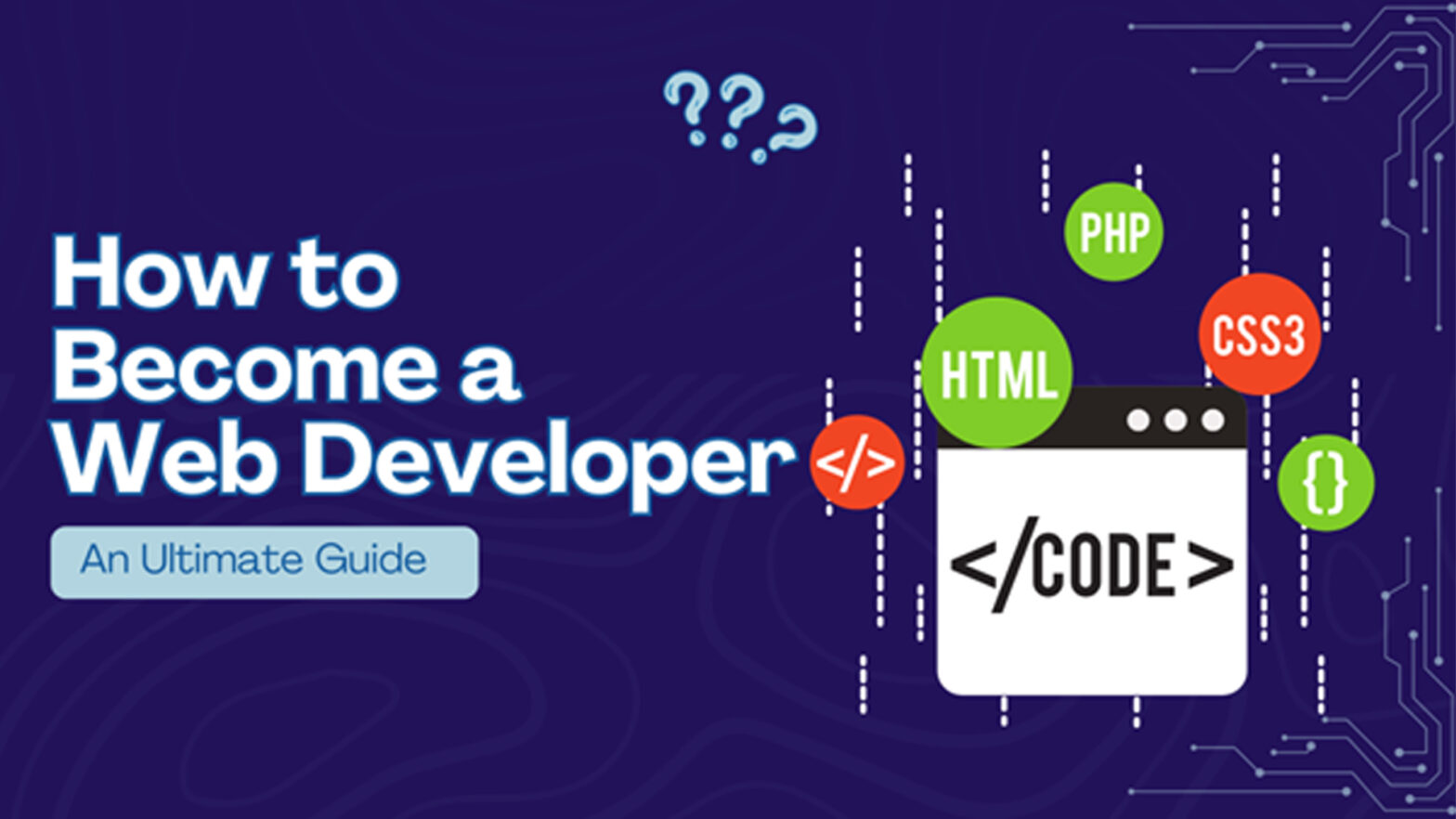

Web development is one of the most in-demand careers in the IT industry. As businesses, organizations, and individuals continue to increase their online presence, the demand for skilled web developers has increased. If you’re considering a career in web development, this guide will help you understand the path you must follow to become a successful web developer.
Who is a Web Developer?
Web developers are responsible for coding, designing, and maintaining web applications. Web developers work on the technical side of web development, building the infrastructure and ensuring that websites are functional, user-friendly, and accessible on various devices. Web development involves creating both a website’s front-end (user interface) and back-end (server-side) elements.
Types of Web Developers
Web developers are typically categorized into three main types based on their roles and the areas of web development they specialize in:
1. Front-End Developer
A front-end developer is responsible for creating the parts of the website that users interact with directly. They design and implement the layout, structure, and style of a website, ensuring that it’s visually appealing and easy to use.
2. Back-End Developer
A back-end developer focuses on the server-side components of a website. They mainly work on databases, server logic, and application architecture. Their role is to ensure that the website functions properly and efficiently.
3. Full-Stack Developer
A full-stack developer must know front-end and back-end development. They are versatile and can handle all aspects of web development, from designing the user interface to building the server-side infrastructure.
Skills Required to Become a Web Developer
To become a proficient web developer, you need to acquire a set of core skills. These include both technical knowledge and problem-solving abilities:
1. Front-End Development Skills
- HTML: The foundation of websites, HTML is used to create and structure web content.
- CSS: CSS is used to style the appearance of web pages, from layout design to font choices and colors.
- JavaScript: JavaScript adds interactivity to websites, such as animations, pop-ups, form validation, and dynamic content loading.
- Frameworks & Libraries: Knowledge of frameworks like React, Angular, or Vue.js, and libraries like jQuery, can help streamline development and improve efficiency.
2. Back-End Development Skills
- Server-Side Languages: Learn programming languages like Node.js, Python, Ruby, PHP, or Java.
- Databases: Knowledge of relational databases such as MySQL, PostgreSQL, or NoSQL and databases such as MongoDB is crucial for storing and retrieving data.
- API Development: Understanding how to create and consume APIs (Application Programming Interfaces) is necessary for integrating third-party services and enabling data exchange between systems.
3. Version Control
Git is a version control system that allows developers to track changes in their code and collaborate with others. Familiarity with platforms like GitHub or GitLab is essential for working in teams.
4. Responsive Design
Understanding responsive design principles ensures that your website works seamlessly on different devices, from desktops to mobile phones.
5. Problem-solving & Debugging
Web developers often face coding challenges, so problem-solving skills are vital. Debugging tools and techniques can help identify and fix issues in the code.
6. Soft Skills
- Good communication skills
- Time management skills
- Attention to detail
These are important skills for web developers, especially when working in teams or interacting with clients.
Conclusion
In conclusion, becoming a web developer is a highly rewarding career choice. The demand for web developers is growing globally, and the skills required are continually evolving. By mastering the relevant programming languages, tools, and frameworks, and by staying updated with industry trends, you can achieve a successful career in web development. Whether you want to pursue front-end, back-end, or full-stack development, there are plenty of opportunities for growth and advancement.
Frequently Asked Questions
1. Do I need a degree to become a web developer?
The degree is not mandatory to become a web developer. Many successful learners have attended online boot camps for expert guidance. Gaining practical knowledge and a strong portfolio often matter more than formal education.
2. How many months does it take to learn web development?
The time it takes to become a web developer depends on your learning pace and dedication. If you are completing as per schedule, you might become proficient in 8 months.
3. Is web development a good career?
Yes, web development is a highly rewarding and flexible career. The demand for skilled web developers continues to grow, and there are opportunities to work in various industries, from tech to healthcare, finance, and entertainment.
4. What is the difference between front-end and back-end development?
Front-end development deals with the parts of a website that users interact with, such as layout, design, and content. Back-end development focuses on server-side functionality, including databases, APIs, and server logic.

Technology
25 March 2025
Ransomware-As-A-Service Variants on the Rise With Critical Infrastructure Providers at the Greatest Risk

Business Advice
25 March 2025
Claims Processing Automation: How Insurers Can Cut Costs and Improve CX

Technology
18 March 2025
Secret Signs Your Internet Security Has Been Compromised






















